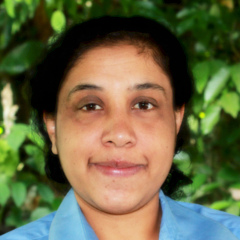ABC of Civil Services | Don't worry too much about International Relations

Mail This Article
The Personality test of civil service examination, which was postponed due to lockdown, has resumed this week after a four-month gap. The candidates who had to wait for a long period are busy brushing up the finer points of current affairs. During recent mock interviews, many raised doubts about how to answer questions related to International Relations. As there are so many things happening all around the world apart from the COVID-19 pandemic, some candidates were worried about the appropriate view points which they should express.
Nothing new
Well, this confusion regarding the International Relations portion is not a new phenomenon. Particularly candidates who choose Indian Foreign Service as their first option worry a lot about how to answer questions on diplomacy. Some start reading too many books and others watch television shows regarding the same. In the end, one often ends up with too many opinions and surprisingly too little facts. So, let me explain this area of International Relations in civil service examination in detail.
International Relations are part of the preliminary and Main examination syllabus. In the preliminary examination, there are two types of questions. One deals with International Institutions and Organisations. One should have a basic understanding related to the United Nations (UN) and its affiliated organisations. The official website of UN is quite rich in content and one could make good use of it. The updates of World Health Organization can be followed, especially during the time of pandemic. One could check these official websites once in a week or so to keep oneself updated.
The other important area in this segment is regional organisations. Importance should be given in paricular to organisations like BRICS and SAARC in which India is a member. One should have an idea related to regional groupings and their members because such questions are often repeated in the preliminary examination. So, when one reads newspapers, any news on international summits of these groupings should be noted.
The other segment of questions in preliminary examination deals with India’s foreign policy. One should have a fair idea about ideas like Panchsheel, Gujral Doctrine and Look East policy. All this information can be found online. The places in news are also important. One should know where is Wuhan (China) or Kalapani (Nepal) as they are in news of late.
For the Main examination, the questions are mainly on India’s bilateral relations. One should know the history and latest trends in India’s relations with big powers like the US and Russia and also with all her neighbours as well as Japan, Brazil, the Eurepean Union and Africa. The website of the Ministry of External Affairs is an excellent source on this. They have daily press releases as well as compilation of articles from media across the globe on relevant issues. The policy think tank called Indian Council of World Affairs also comes up with well researched articles on this topic.
In the Interview stage, apart from the above-mentioned areas, lighter questions like “How do you rate Donald Trump as a leader?” could also be asked. These questions can be answered based on one’s general reading and understanding.
Rely on official sources
An aspirant needs to keep in mind that International Relations is a dynamic and evolving area and the information regarding it in the public realm may not give the complete picture. So, it is important to stick to official sources and not subscribe to conspiracy theories. Many a time, senior bureaucrats or journalists may come up with exotic theories and suggestions regarding certain issues. But a candidate should keep away from such extreme point of views and form an opinion based on available facts. One could always put prefixes like “as per media reports” while stating the view point.
Only those who pursue studies in International Relations get deeper questions on policy analysis of diplomacy. For others, the questions will be asked as a tool to check the general awareness. Any person who has prepared well for prelims and Main will be able to answer that. So, one need not worry too much about International Relations but just need to follow it like current affairs.
(Remya Roshni, ex-IPS, is a civil service trainer and author of "How to Ace Civil Service Interviews")


